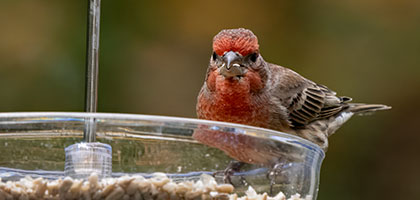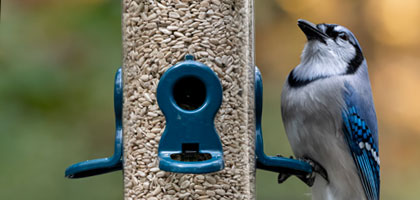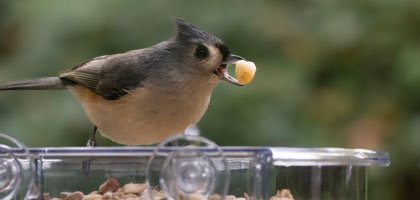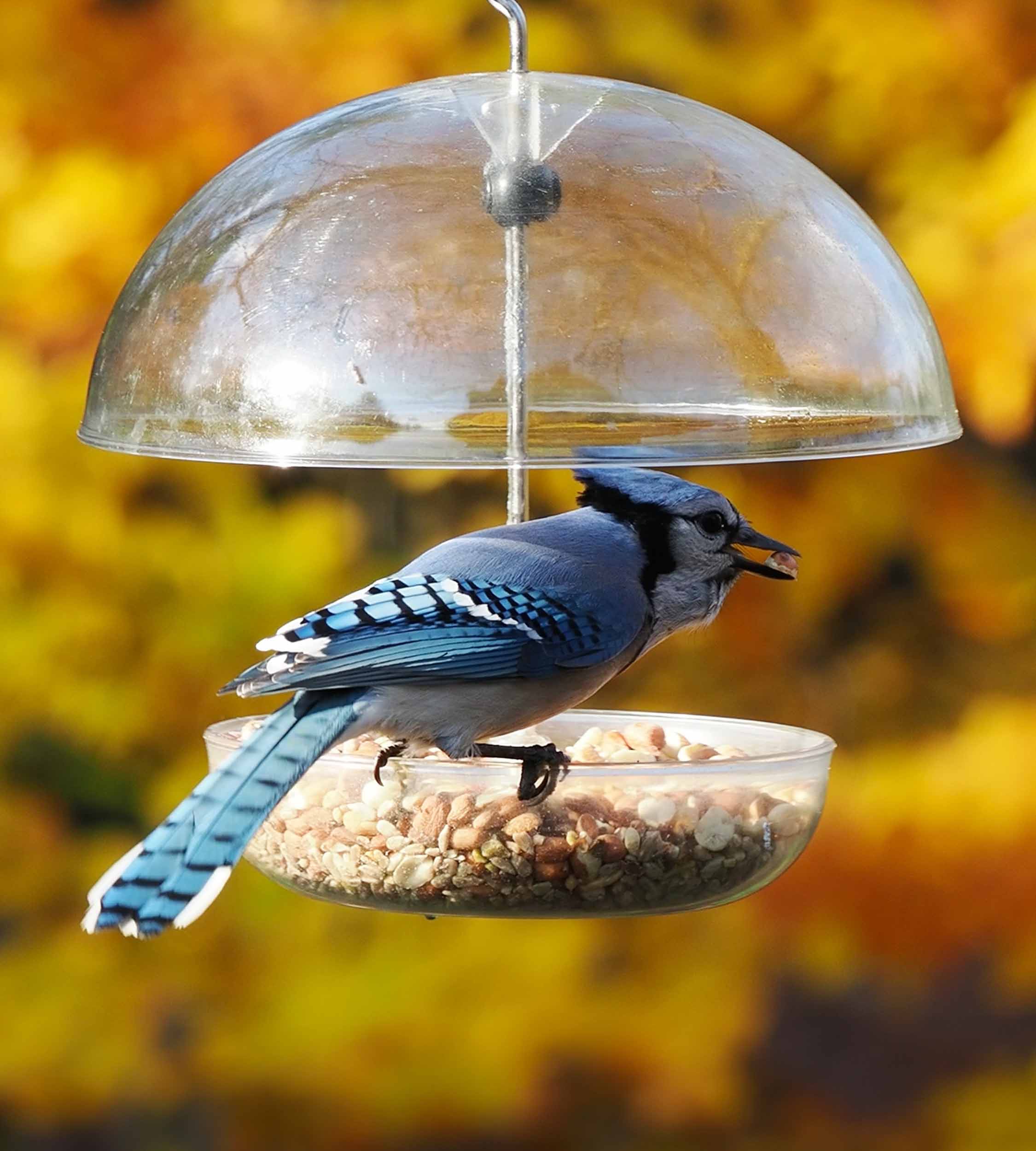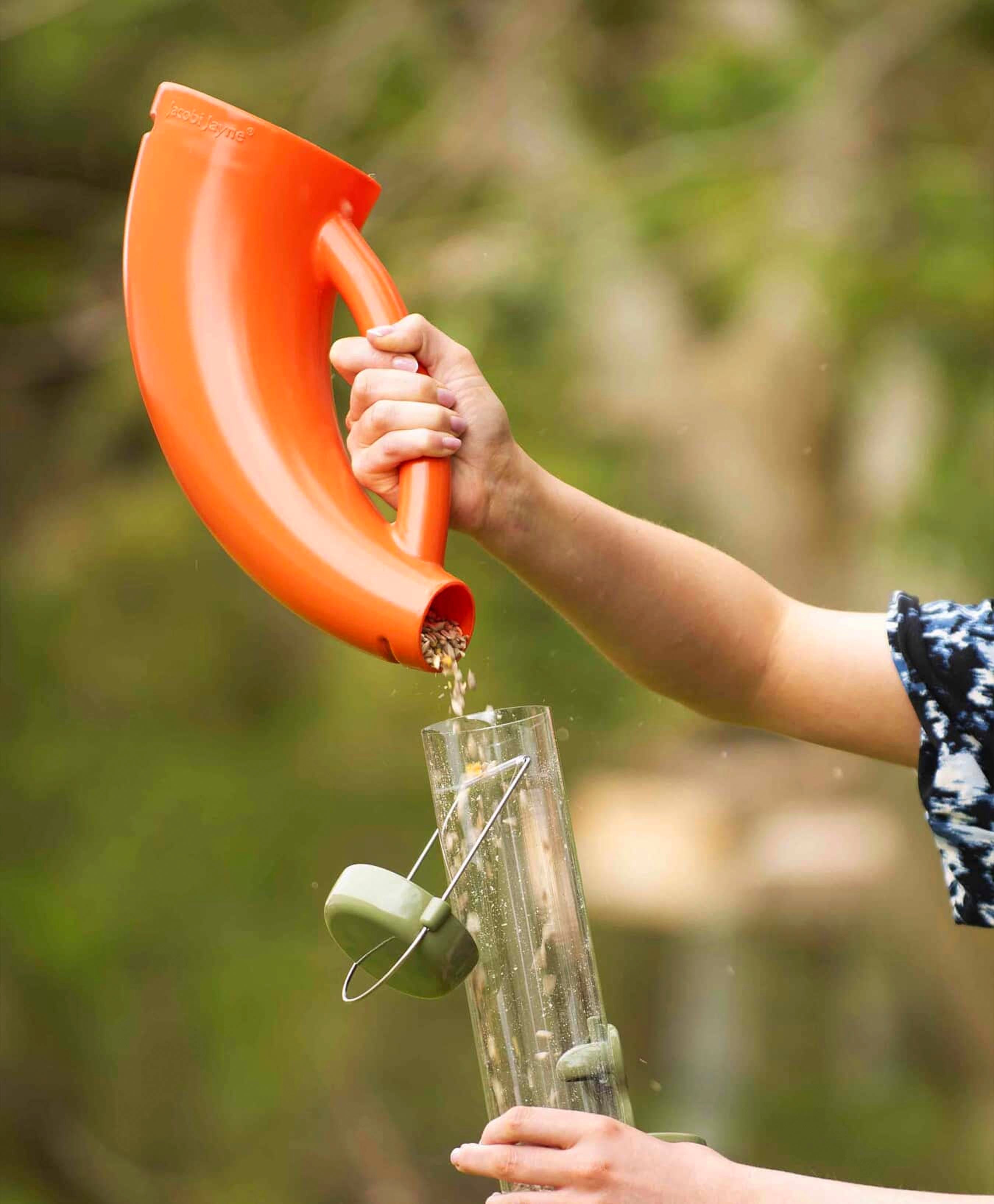Birdwatching is a rewarding hobby. It brings us closer to nature and offers a peaceful retreat from our busy lives. But what if you could enjoy this pastime without leaving your home?
Attracting birds to your window is a simple way to observe these fascinating creatures up close. With the right window feeder, you can transform your window into a bustling bird hub.
This guide will provide practical tips on how to attract birds to your window. From choosing the right feeder to creating a bird-friendly environment, we've got you covered.
Understanding Bird Attraction to Windows
Birds are naturally attracted to places that offer food, water, and shelter. Your window can become this haven with the right setup.
Windows with bird feeders mimic natural feeding environments. They draw birds due to the visible food source combined with the safety of a nearby structure.
Birds are also curious and are drawn to windows by reflections or movements they see. This curiosity can be leveraged to attract them by using bright colors or subtle sounds.
Additionally, some birds are attracted to the convenience of window feeders. These feeders require less energy to access than searching for food in the wild.
To successfully attract birds to your window, consider the following factors:
- Visibility: Ensure the feeder is clearly visible to birds.
- Safety: Minimize potential hazards.
- Consistency: Regularly refill feeders and maintain the space. By understanding these attractions, you can create a welcoming and inviting window space for your feathered visitors.
Choosing the Right Window Feeder
Selecting the right window feeder is vital for attracting various bird species. Different feeders cater to different birds, so choosing wisely can make a difference.
Consider the material of the feeder. Plastic feeders are lightweight and durable, while glass ones offer a clearer view.
Size is another crucial factor. Larger feeders can hold more food, reducing refill frequency but may overwhelm smaller birds.
Design also plays a role. Feeders with perches attract birds that like to rest while feeding, while tray feeders suit those comfortable with open spaces.
When choosing a feeder, assess the following:
- Material: Opt for durable and weather-resistant options.
- Size: Match the feeder size to the species you wish to attract.
- Design: Consider bird preferences for perch types or open trays.
The right window bird feeder can enhance your birdwatching experience, drawing in colorful, lively visitors daily.
Creating a Bird-Friendly Environment
A bird-friendly environment encourages birds to visit and linger. Start by planting native shrubs and flowers near your window. These provide food and shelter.
Water sources are essential. Install a small birdbath or fountain to entice birds looking to quench their thirst.
Avoid using pesticides in your garden. Chemicals can deter birds and harm their natural habitat. Opt for organic solutions instead.
Introduce nesting materials to attract birds during the breeding season. Twigs, dried grasses, and feathers work wonders.
Transform your window area with the following elements:
- Native plants: Provide food and habitat.
- Water sources: Essential for hydration.
- Pesticide-free zones: Ensure a safe environment.
- Nesting materials: Encourage nesting.
Creating such an environment benefits the birds and enhances your birdwatching experience. Birds visiting your window will bring life and joy to your home.
The Importance of Bird Feeder Placement
Placement is key to attracting birds to your window feeder. Position the feeder at a height easily accessible to birds, yet safe from predators.
Consider distance from the window pane. Place the feeder close enough to prevent injury but far enough to avoid stress from human presence.
Ensure a clear view from your room without overcrowding nearby plants or obstacles. Birds need an open approach and departure path.
Think about different viewpoints for birdwatching enjoyment. Strategic placement enhances visibility and invites more species to visit your feeder.
Offering a Variety of Foods
Birds have diverse diets, so offering a range of foods is essential. Different species have different preferences.
Consider using a mix to cater to as many birds as possible. This encourages regular visits to your window feeder.
Here are some popular food options for birds:
- Black oil sunflower seeds
- Nyjer seeds
- Suet cakes
- Peanuts
- Millet
Rotate food offerings to maintain bird interest. Seasonal changes may affect food availability in nature. By catering to these changes, you supplement their diet.
Using no-mess seeds helps keep the area tidy. This attracts birds while making maintenance easier.
Safety Measures for Birds
Ensuring a safe environment is vital for birds visiting your feeder. This includes taking preventive measures to avoid harm.
Birds often collide with windows, so make glass visible. Use decals or window films to help.
Here are some safety tips:
- Position feeders close to the window to reduce collision speed.
- Install netting or screens to cushion impacts.
- Keep feeders clean to prevent disease spread.
Avoid placing feeders near potential predators' hiding spots. This reduces the risk of surprise attacks.
Regular maintenance helps ensure ongoing safety. By taking these steps, you provide a secure haven for your feathered guests.
Maintaining and Cleaning Your Window Feeder
Proper maintenance is crucial for a healthy bird feeder environment. Regular cleaning prevents the spread of diseases among birds.
Inspect your feeder often to ensure it's in good working condition. Remove old or moldy feed as soon as possible.
Cleaning the feeder every few weeks is a good practice. Use mild soap and warm water to cleanse surfaces.
Also, consider rinsing thoroughly to remove any soap residue. Make sure everything dries completely before refilling with fresh seeds.
Regular checks help in keeping the feeder inviting and safe. Consistent attention benefits both birds and birdwatchers.
Engaging with the Birdwatching Community
Connecting with other birdwatchers enhances your experience. Join local birdwatching groups or online communities for tips and insights.
Sharing experiences can deepen your understanding of bird behavior. It’s an opportunity to learn from those with more experience.
Participating in birdwatching forums allows you to ask questions and share your observations. These interactions can enrich your birdwatching journey.
Communities often organize events like bird counts or nature walks. Involvement in these activities promotes bird conservation and fosters a sense of camaraderie among bird enthusiasts. Engaging with others adds joy and purpose to your birdwatching.
Conclusion: The Joy of Birdwatching at Your Window
Watching birds from your window brings joy and tranquility. It’s a delightful way to connect with nature every day. The vibrant activity right outside your home is both calming and captivating.
Creating a bird-friendly window is rewarding. You contribute to bird conservation while enjoying their presence. The sight of various bird species can brighten even the dullest day.
This pastime offers endless opportunities for learning. From identifying species to understanding their behavior, birdwatching is an enriching hobby. Whether alone or with family, sharing these moments provides peace and a sense of wonder about the natural world.
